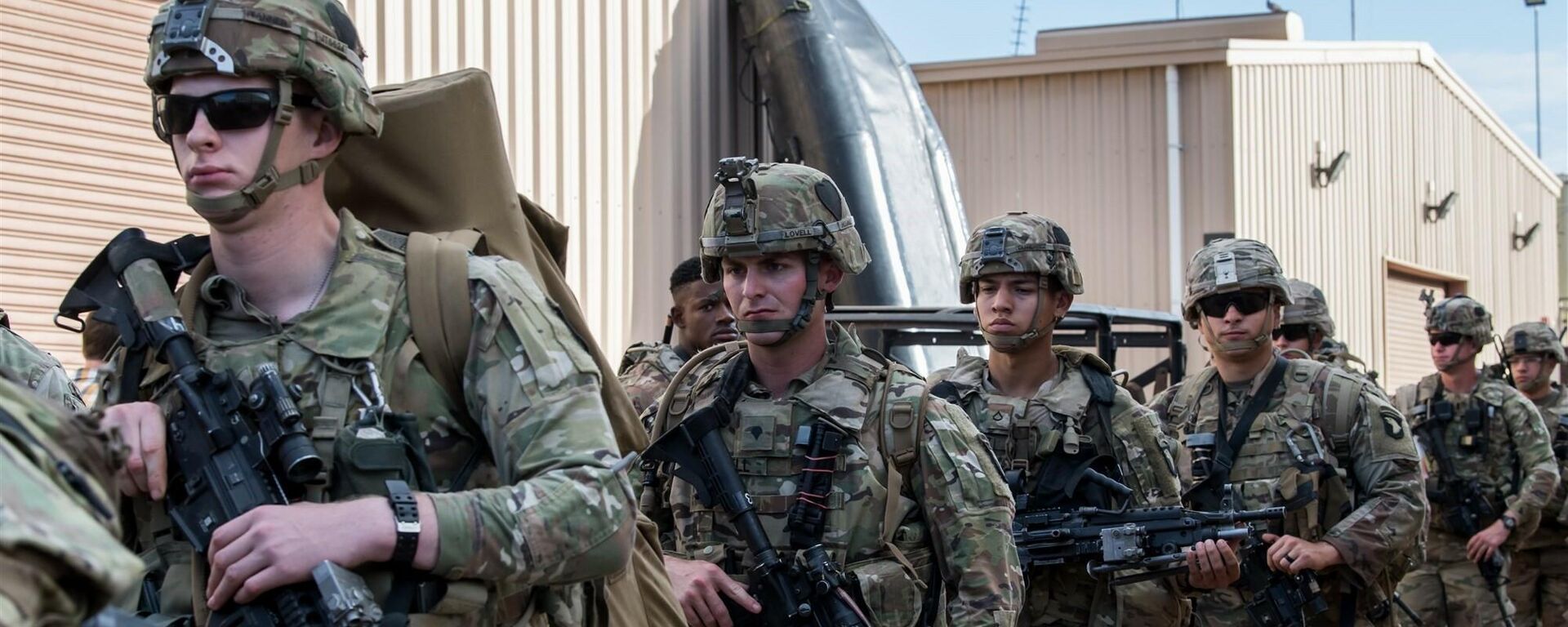Gen Z Skeptical of US Institutions Amid Converging Economic, Geopolitical Failures

CC0 / /
Subscribe
Younger Americans have seen the benefits of the post-World War II economic boom almost totally evaporate, making them increasingly skeptical about supporting a system that has failed to deliver on its promises of prosperity and security, a college organizer told Sputnik.
A recent report to Congress by the recruiting chiefs of the US military’s five service branches revealed widespread staffing problems. Multiple branches failed to meet their recruiting goals, with the US Army falling more than 100,000 people short. Previously, a report revealed US Navy warships are commonly operating at two-thirds of their typical crew complement, damaging morale and contributing to deadly accidents - problems the Navy said still existed in 2023.
USAF Brig. Gen. Christopher R. Amrhein, commander of the USAF’s recruiting service, told lawmakers that fewer young Americans are willing to serve in the armed forces. He pointed out that just 12% of US youth have a parent who served in the military, compared to 40% in 1995, noting the “youth market” of potential recruits had "transitioned from being disconnected with the military to mostly disinterested with it.”
Max Reed, American Student Union president, told Sputnik that a number of social factors have converged on Generation Z, those born between the late 1990s and early 2010s, to undermine their faith in either the American government or socioeconomic system.
“I think what we're seeing here is a culmination of a couple factors: you have Generation Z growing up without the societal wealth that other generation, such as the Greatest Generation, Baby Boomers, and even Gen-X to a certain degree, possessed as a result of the kind of the postwar economic boom that the US experienced as a result of being the only economy left standing at the end of the Second World War. We also have a kind of changing, I guess, attitude about the military as more and more people grow up, not just with war on the news but war on cell phones. I can't tell you how many people I know and Generation Z are on Discord, Telegram, or various social media apps where content about showing the reality, the brutality and the gore of war is just all over their screens. And I think this is creating an effect where American youth aren't only just questioning the meaning of these wars - US foreign policy as a whole - they're also contemplating what is the point of a military that is not defending us at home or abroad as we continue to see increasing instability throughout the Middle East as a result of US foreign policy action.”
Reed said another factor was that younger people don’t see themselves and their needs reflected in the policies being undertaken by their government.
“People see - and accurately so - the US military being the armed wing of the US government and the state and you know, it's kind of a social contract between yourself and if you join the armed forces, armed forces expect you to serve and to obey not only the Constitution but defend the American republic. But as American youth and students are in this economic situation that we're in, are seeing all these foreign wars overseas or having relatives addicted to opiates or coming back from wars damaged, I think we're seeing a propensity for American youth just not willing to participate and join a US military that will very quickly deploy them overseas for a year and then have them come back wounded or otherwise mentally unwell. I mean, if you look at the way veterans are treated in American society, a ridiculous amount of veterans are homeless today in American society while we're spending $100 billion funding Nazis in Ukraine.”
A recent report from Brown University’s Costs of War Project concluded that US military interventions over the last 20 years have made Americans less safe, pointing out that there are more terrorist groups in 2023 than before the US War on Terror was launched in 2001. Reed recalled that the CIA coined the now-common term “blowback” during the Cold War for the phenomenon of US intelligence operations having “unintended consequences” that might even affect Americans back home.
“We've clearly seen that the funding of the Mujahideen in the 80s led to the growth of al-Qaeda, the Taliban, and the September 11th attacks. Osama bin Laden used to be our guy in Afghanistan - 20 years later, we were fighting him. So I think we're seeing things in, so to speak, the chickens coming home to roost, in terms of US foreign policy. And I can't imagine what's going to happen in the next ten years or so with all these weapons of destruction left over from the Ukraine conflict that's been imposed ever since 2014 by a US-sponsored coup, destabilizing a lot of Central Europe with the drug trade, arms trade, neo-Nazism. It's really a scary thought to think, at some point in the future in America we could be dealing with not just the aftermath of the war on terror, but this recent conflict in Ukraine.”
“Well, I think you have a problem particularly amongst Gen Z. There is this sense of hatred for both the Democratic and Republican parties. Social media has, and the Democratic Party, to their credit, have very effectively used this kind of social blackmail, especially amongst middle class, upper-middle class students, to make them feel as though, ‘oh, we have to vote for the Democrats because the Republicans are so evil and they're going to do X, Y, Z.’ But there is a growing bloc of people of my generation who are just simply out of the system, aren't going to vote, or if they do vote, will probably vote for the Greens or Libertarian parties, just so they're not going to vote for the establishment.”
“Another thing that we're seeing in universities, especially related to the recent conflicts in Palestine, is the blacklisting of teachers, students, faculty to the point where these people are being put on websites, the Canary Mission, for example. We're seeing a real attack on the civil liberties and kind of the political expression of Generation Z. And I think we've yet to see the full metastasization of what this is going to mean and the future coming years.”


